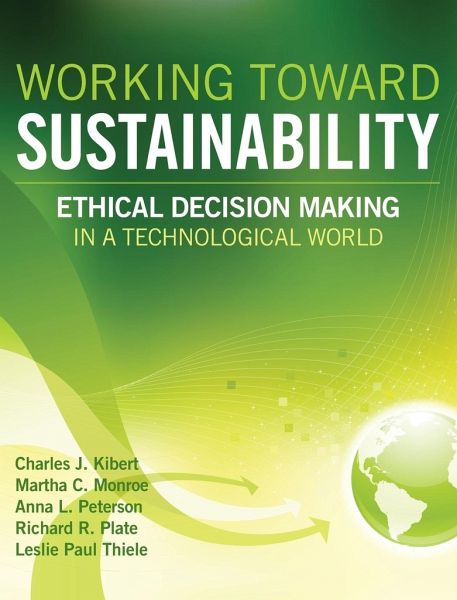Nicht lieferbar

Working Toward Sustainability
Ethical Decision-Making in a Technological World
By Charles J. Kibert, Martha C. Monroe, Anna L. Peterson, Richard R. Plate, Leslie Paul Thiele
Because sustainability ultimately rests on ethics, this groundbreaking book is a crucial link in extending sustainability from a mere intellectual exercise to a broader spectrum. Ethics of Sustainability develops a comprehensive ethical foundation for sustainability by bringing together nine ethical principles together in a cohesive manner to provide the badly needed ethical arguments that support this important concept. Each chapter is supported by case studies, exercises and other pedagogy, enabling technical professionals in various fields to understand the ethical foundations that apply to their needs.
A comprehensive introduction to the ethics of sustainability for empowering professionals and practitioners in many different fields
By building the framework for balancing technological developments with their social and environmental effects, sustainable practices have grounded the vision of the green movement for the past few decades. Now deeply rooted in the public conscience, sustainability has put its stamp on various institutions and sectors, from national to local governments, from agriculture to tourism, and from manufacturing to resource management. But until now, the technological sector has operated without a cohesive set of sustainability principles to guide its actions. Working Toward Sustainability fills this gap by empowering professionals in various fields with an understanding of the ethical foundations they need to promoting and achieving sustainable development.
In addition, Working Toward Sustainability:
Offers a comprehensive introduction to the ethics of sustainability for those in the technical fields whether construction, engineering, resource management, the sciences, architecture, or design
Supports nine central principles using case studies, exercises, and instructor material
Includes illustrations throughout to help bring the concepts to life
By demonstrating that sustainable solutions tart with ethical choices, this groundbreaking book helps professionals in virtually every sector and field of endeavor work toward sustainability.
By building the framework for balancing technological developments with their social and environmental effects, sustainable practices have grounded the vision of the green movement for the past few decades. Now deeply rooted in the public conscience, sustainability has put its stamp on various institutions and sectors, from national to local governments, from agriculture to tourism, and from manufacturing to resource management. But until now, the technological sector has operated without a cohesive set of sustainability principles to guide its actions. Working Toward Sustainability fills this gap by empowering professionals in various fields with an understanding of the ethical foundations they need to promoting and achieving sustainable development.
In addition, Working Toward Sustainability:
Offers a comprehensive introduction to the ethics of sustainability for those in the technical fields whether construction, engineering, resource management, the sciences, architecture, or design
Supports nine central principles using case studies, exercises, and instructor material
Includes illustrations throughout to help bring the concepts to life
By demonstrating that sustainable solutions tart with ethical choices, this groundbreaking book helps professionals in virtually every sector and field of endeavor work toward sustainability.













